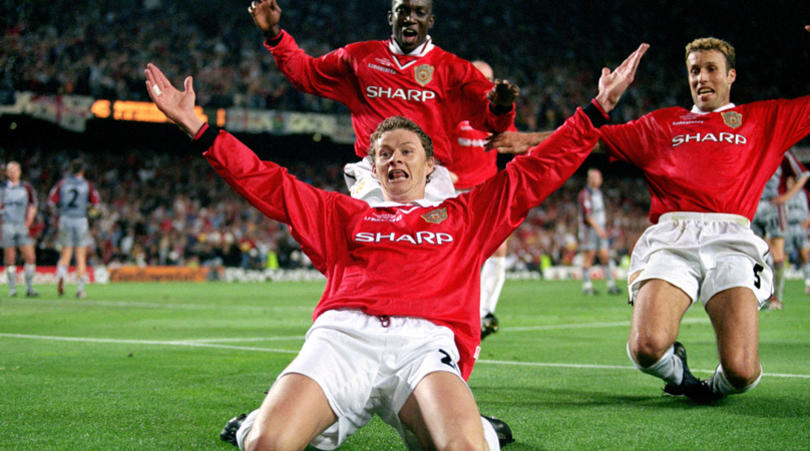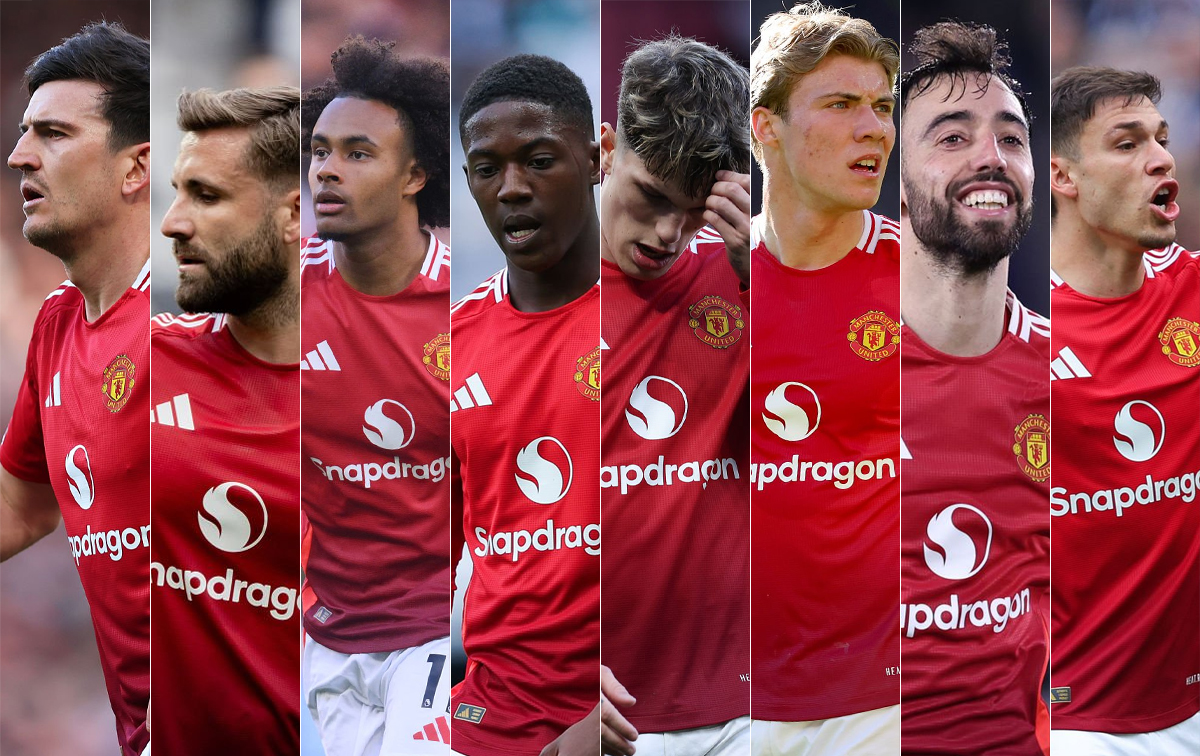Ranked! The 15 greatest British footballing exports EVER
From Barcelona to Real Madrid, Milan to Nagoya Grampus Eight, these Brits abroad achieved more acclaim than any others, writes Huw Davies
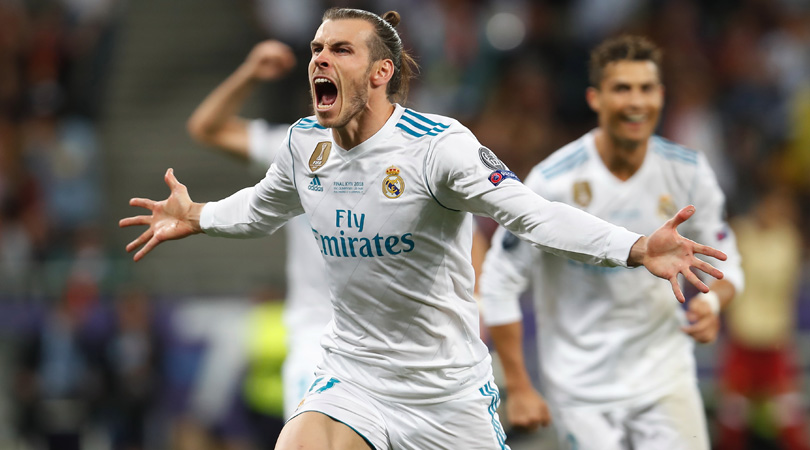
It is, apparently, a great time to be anywhere but England. Not since the early '90s have so many players left English football behind, and younger than ever before.
Ademola Lookman, Reece Oxford, Chris Willock – the list of under-21s with wanderlust last season grew alongside their opportunities. Teenager Marcus McGuane made his Barcelona debut a few weeks after leaving Arsenal’s academy. At Borussia Dortmund, Jadon Sancho turned the heads of fans, scouts and bewildered Bundesliga defenders before he could legally drink in the UK (although, conveniently, he could in Germany).
These youngsters are taking bold steps – but they’re not the first. Ever since Scottish textile worker Thomas Donohoe introduced the game to Brazil in 1894, where it was popularised by Brazil-born Anglo-Scot Charles Miller, British footballers have been playing abroad. The 15 we’re about to name are the pick of the bunch in terms of reputation overseas.
Football in the UK is comparatively insular, yet enough players have spread their wings for this countdown to omit some big names. In whittling it down, we lost Owen Hargreaves (a great success at Bayern Munich but not really a British export, having emigrated directly from Canada to Germany), Paul Gascoigne (who never got to show Lazio his true worth) and Bradley Wright-Phillips (one of the all-time top scorers in MLS; however, we’re focusing on elite leagues).
We begin with a man who proved it can take just one afternoon to become a club legend.
15. Mark Hateley
Detroit Express 1980, Milan 1984-87, Monaco 1987-90
Get FourFourTwo Newsletter
The best features, fun and footballing quizzes, straight to your inbox every week.
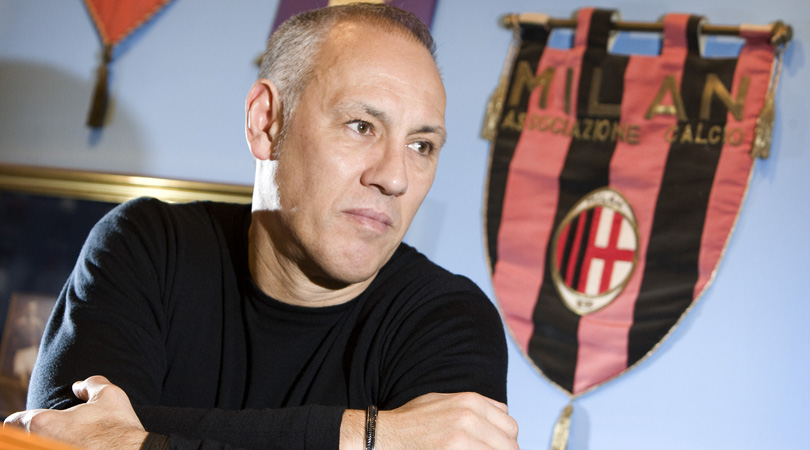
If Rossoneri fans had to define the three English strikers in AC Milan’s history as The Good, The Bad and The Ugly, then Mark Hateley would lead the line.
Luther Blissett (Bad) and Jimmy Greaves (Ugly) both became infamous for off-field reasons: Greaves’ six-month stay brought eight goals in 10 Serie A games but primarily fallouts and boozing, while the lesser Blissett became an alter ego for underground social activists. Obviously.
Hateley, though, is remembered for something he did on the pitch. His arrival from second-tier strugglers Portsmouth indicates Milan’s level in 1984, and it had been six long years since they’d beaten arch-rivals Inter. Cue Hateley climbing to power a header past Walter Zenga for an iconic winner. Hateley still appears on the odd Curva Sud banner on derby day, sadly unaccompanied by his Milan team-mate, Ray Wilkins.
14. John Collins
Monaco 1996-98
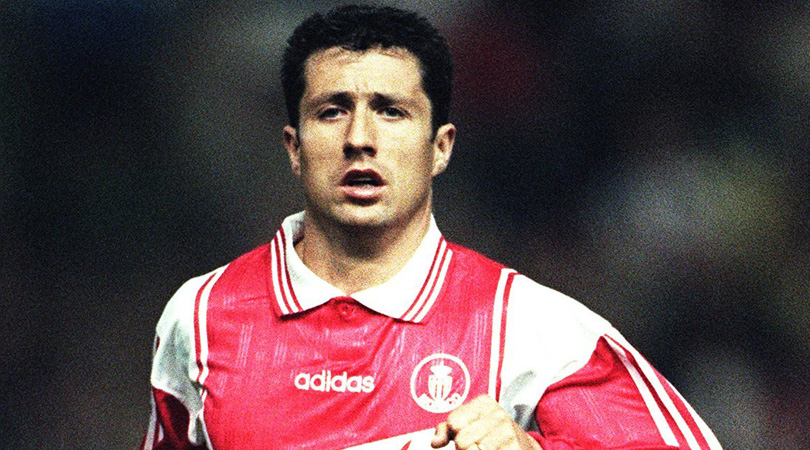
Thierry Henry, Fabien Barthez, Emmanuel Petit, David Trezeguet… when Monaco reached the 1996/97 Champions League semi-finals and won Ligue 1 by 12 points, they set up the 1998 World Cup very nicely. Sure enough, Monaco’s John Collins scored in France 98’s opening game.
The Scot ran their midfield after leaving Celtic in Britain’s first major Bosman transfer. Celtic asked for compensation by saying Monaco isn’t a country, which Collins’ agent called “a nice try”.
13. Gerry Hitchens
Inter 1961-62, Torino 1962-65, Atalanta 1965-67, Cagliari 1967-69
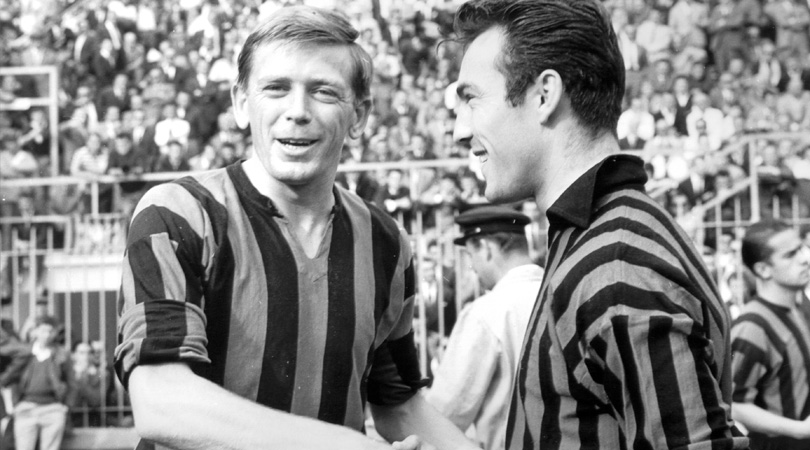
A former coal miner called Gerald Archibald Hitchens doesn’t sound like someone who’d move to Italy. That’s what Alf Ramsey thought, anyway.
Hitchens swapped Aston Villa for Inter after scoring twice as England beat Italy 3-2 in Rome, then netted in the 1962 World Cup quarter-final, but never represented his nation again as Ramsey replaced Walter Winterbottom in charge. Serie A was the world’s strongest league, producing four of the 1960s’ 10 European Cup winners, but for Ramsey, the centre-forward with five goals in seven caps was out of sight and therefore out of mind. When Hitchens drove to meet a travelling Ramsey in Milan, the manager replied: “Oh yes, you’re playing in these parts.”
Unlike Jimmy Greaves, his secret drinking partner away from the eyes of Milan and Inter fans, Hitchens stuck it out in Italy and succeeded. Sadly, he ended his international career in doing so.
12. Paul Lambert
Borussia Dortmund 1996-97
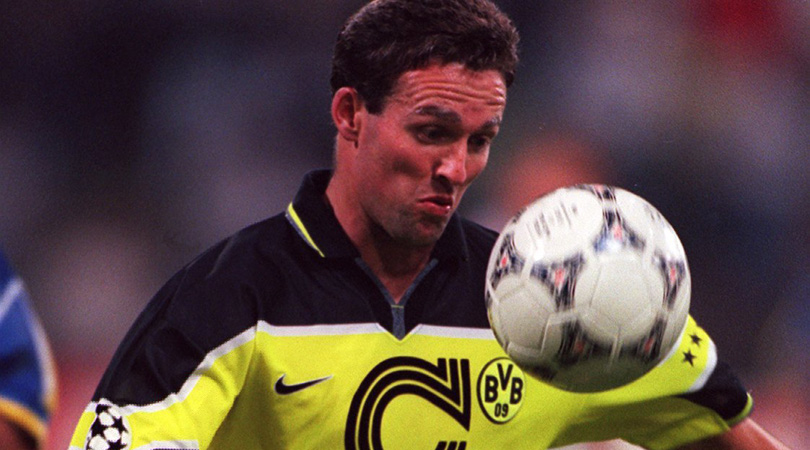
One year… but what a year. Paul Lambert spent two decades playing in Scotland either side of a brief stint with Dortmund, in which BVB happened to win their only Champions League title.
Lambert would later admit to self-doubt upon arriving at Dortmund: “I saw the players… he’d won Serie A; he’d won the World Cup; he’d won the European Championship… and I’m coming on a free transfer from Motherwell. I was worth a bottle of Coke. Jesus!” But Lambert was no passenger. In the Champions League Final, he kept a tight leash on Zinedine Zidane of Juventus and set up Dortmund’s first goal in a 3-1 win. Then, job done, he returned to Scotland.
11. David Platt
Bari 1991-92, Juventus 1992-93, Sampdoria 1993-95
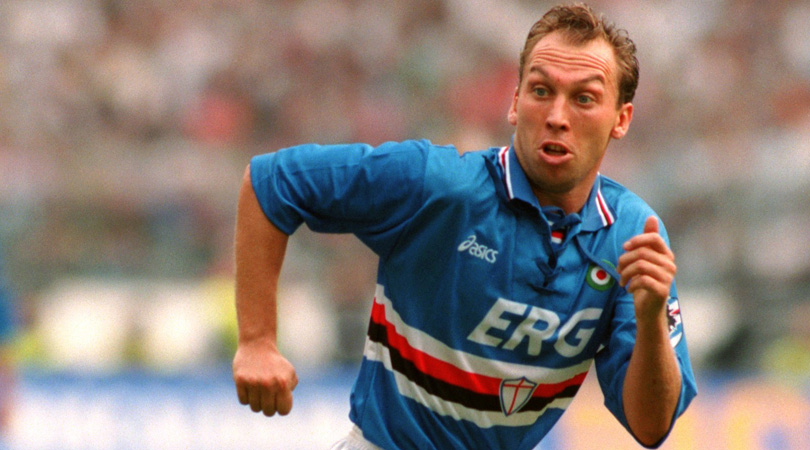
After two years in which you’ve won PFA Player of the Year, scored 38 league goals from Aston Villa’s midfield and starred in a World Cup, where else is there to go but Bari? Platt was immediately installed as captain, only to quickly learn why they’d been battling relegation. Bari didn’t win a game until January and went down with the midfielder scoring 11 of their 26 goals.
A move to Juventus didn’t work out, but after two years of Roberto Mancini straight-up stalking him (“He’d tracked my number from somewhere… every two weeks he’d be on the phone, pressing me”), Platt joined Sampdoria and excelled alongside Mancini, Ruud Gullit and Attilio Lombardo, finishing third and winning the Coppa Italia.
The club haven’t bettered that campaign in the 25 years since – especially not in 1998/99, when Platt returned as their unofficial manager, signed Lee Sharpe and quit before they were relegated. When Trevor Francis and Graeme Souness secured hero status a decade earlier by helping Samp to win their first silverware, they had the sense not to come back and ruin it.
10. Laurie Cunningham
Real Madrid 1979-83, Sporting Gijon 1983-84, Marseille 1984-85, Rayo Vallecano 1986-87, Charleroi 1987, Rayo Vallecano 1988-89
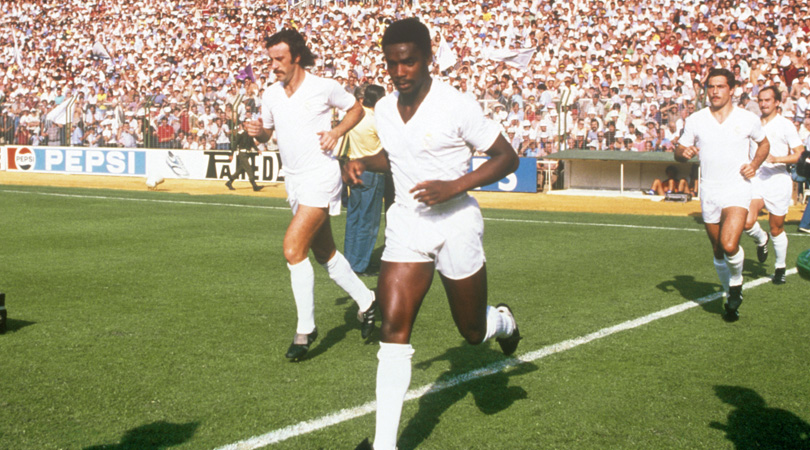
Cunningham’s influence should never be forgotten. Not only was he one of the English national team’s first black players, he blazed a trail abroad as Real Madrid’s first ever British signing – and at just shy of a million pounds, in 1979, he wasn’t cheap.
In what could now be called a Reverse Ronaldinho, one immense Clasico performance earned Cunningham a standing ovation from Barcelona fans at the Camp Nou, even drawing comparisons with Los Cules’ hero, Johan Cruyff. He won the Double and played in a European Cup final before injuries intervened, sending the winger on a nomadic course around Europe.
Tragically, Cunningham died in a car crash a few weeks after leading Rayo Vallecano to promotion in 1989. He was 33.
9. Steve Archibald
Barcelona 1984-88, Espanyol 1989-90
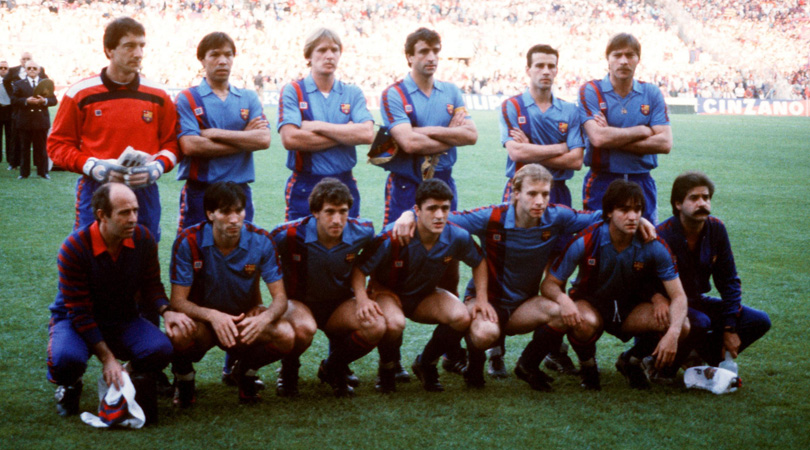
If you’ll excuse us for reducing half a decade to a few facts, try this for size: Archibald joined Barcelona just as Diego Maradona left, immediately helped them to win a first league title in 11 years, averaged a goal every other game, played in the European Cup final a year later (losing on penalties to Steaua Bucharest) and saw off Mark Hughes when he arrived that summer.
Hughes joined Archibald (above: front row, third on the right) and this countdown’s No.5 at Terry Venables’ Barcelona despite a rule limiting teams to two foreign players per game. An injured Archibald made way in this far-flung battle of Britain, but soon took back his place ahead of a misfiring Sparky. “The fans wanted me back in and they let [Venables] know,” the Scot later reflected. “I immediately started scoring goals. It’s a shame it didn’t work out for Mark, but that’s football.” Ouch.
8. David Beckham
Real Madrid 2003-07, LA Galaxy 2007-12, Milan 2009-10, PSG 2013
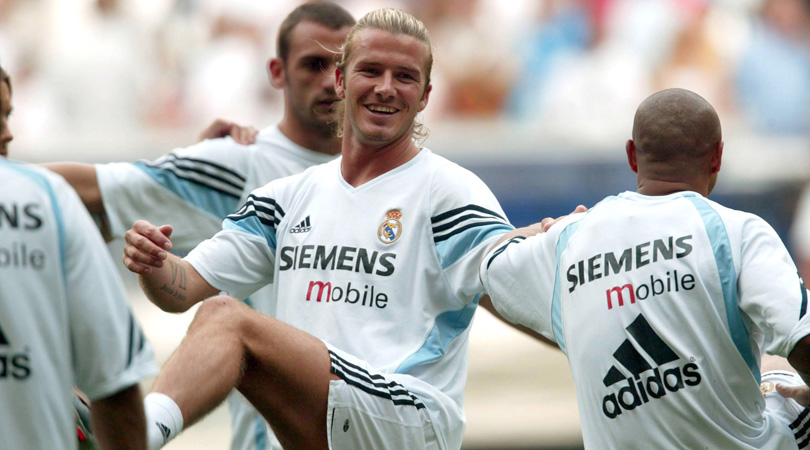
Beckham’s contribution to football in the US shouldn’t be understated, and nor should his commitment: he did, after all, stay for six seasons. But before Becks Abroad began to resemble a tour of fashion boutiques – LA, Milan, Paris – his move to Real Madrid was A Very Big Deal.
Even if Florentino Perez’s own motives were muddled (he famously sold Claude Makelele in the same summer), Beckham’s move from Manchester United to Madrid was no ego trip. He worked harder than anyone, to his team-mates’ surprise and delight, and impressed on the pitch, mainly doing things like this.
The Englishman tapped in a (Brazilian) Ronaldo cross three minutes into his league debut in 2003, impressed every year and signed off in 2007 with – at last – a league title. He sent Real Madrid’s merch sales through the roof, said Forbes, yet that was the Galacticos’ first trophy for four years and Beckham’s only silverware in Spain.
7. Glenn Hoddle
Monaco 1987-91
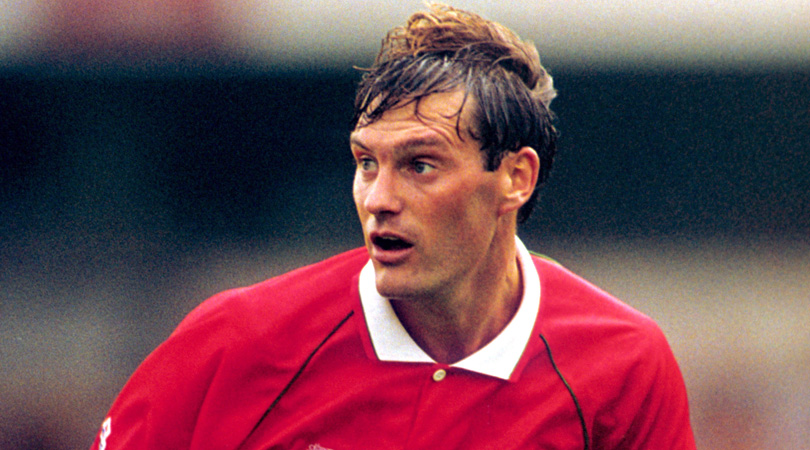
Of course it was Arsene Wenger who brought Hoddle’s inimitable playing style to Monaco. Yet it’s simplistic to say his game was more appreciated in France than in 1980s England – simplistic, if not entirely untrue – and he got the best out of the team as much as the other way around.
The midfielder immediately helped Monaco to claim their first league title for six years. The following season, they reached the European Cup quarter-finals and Coupe de France final as Hoddle won the French league’s Best Foreign Player award.
6. Steve McManaman
Real Madrid 1999-2003
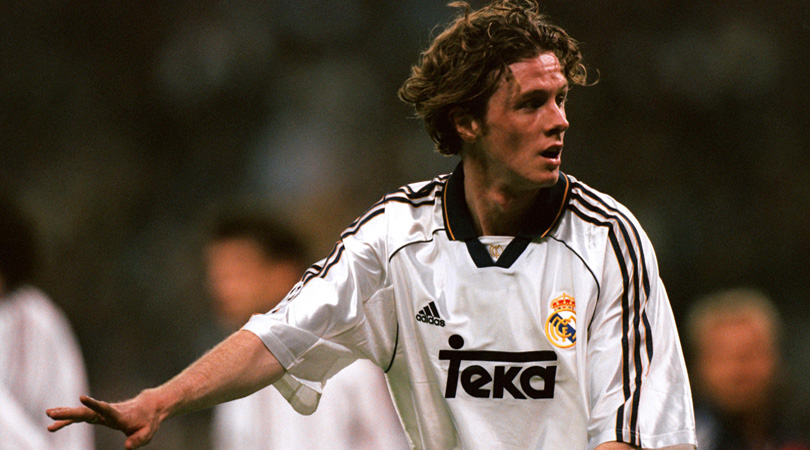
McManaman lifted the Champions League trophy twice, back when Real Madrid didn’t win it by default each year. Yet squad mutinies and debt provided the backdrop for his arrival. He was signed by Guus Hiddink, made his debut under John Toshack (assisting a stoppage-time winner) and finished his first season playing for Vicente del Bosque.
With all that following a publicly difficult Liverpool exit, McManaman could have melted under the spotlight. Instead he shone in Madrid’s midfield, saving his defining performance for the 2000 Champions League Final, capping a perfectly-balanced man-of-the-match display with an exquisite volleyed goal.
Naturally, new president Florentino Perez immediately signed Luis Figo and told McManaman he wasn’t needed. He eventually left, crushed by the weight of Galacticos, but not before lifting Ol’ Big Ears again, having scored away at Barcelona in the semi-final.
5. Gary Lineker
Barcelona 1986-89, Nagoya Grampus Eight 1992-94
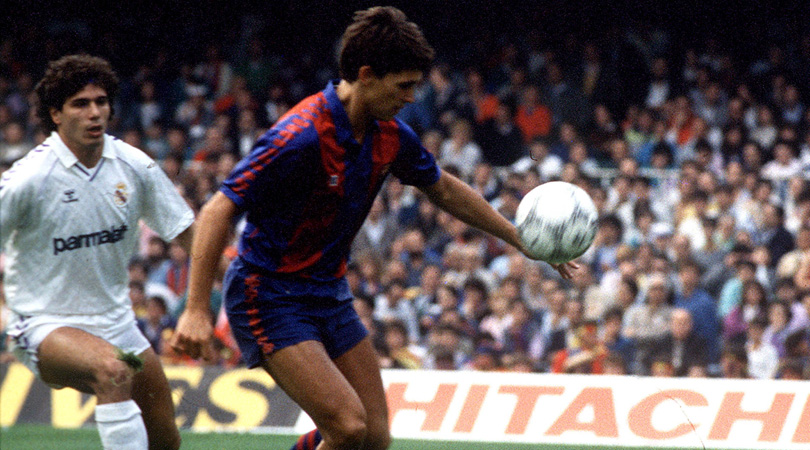
Barcelona signed Lineker in 1986 on the back of his Golden Boot-winning World Cup, and though that included a hat-trick to follow his three league hat-tricks in a single season with Everton, he’d find La Liga much tric... No, wait, he went and scored a hat-trick in El Clasico.
Coming in a 3-2 win at Camp Nou, his derby treble was classic Lineker: a one-on-one following two tap-ins from a combined distance of five yards. The positioning, instinct and desire for the first two goals, then the anticipation of a defensive error and subsequent composure for the third, showed a goalpoacher at his finest.
There was more than just his Clasico act, of course. Lineker won the Cup Winners’ Cup and Copa del Rey with Barcelona and scored 36 goals in 77 league games, before Johan Cruyff opted to play him on the wing, because he’s Johan Goddamn Cruyff. Lineker moved back to England and disappeared into obscurity, never to be seen again.
4. Chris Waddle
Marseille 1989-92
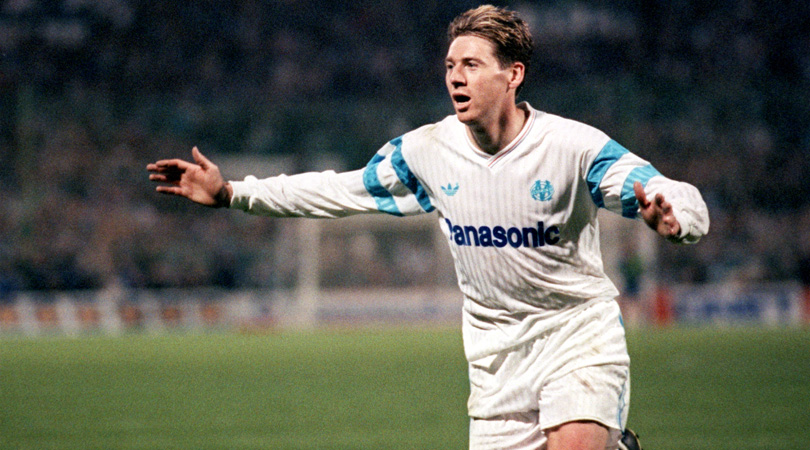
Waddle started awkwardly at Marseille, huge price tag around his neck, until a magnificently piss-boiling goal in Le Classique changed everything.
Beating PSG’s offside trap, Waddle realised his mullet would weigh down any jump for a header and so he chest-trapped the ball instead, then flicked it over PSG goalkeeper Joel Bats. As for the finish… well. He actually scuffed it into his other leg, but who cares?
That was the catalyst for Waddle’s sublime performances in France, where his wing wizardry would help l’OM to win three league titles in three years and reach the 1991 European Cup Final, only to lose to Red Star Belgrade on penalties. Waddle didn’t even get to take one, though you can understand why.
READChris Waddle: Great Goals Retold
3. Gareth Bale
Real Madrid 2013-present
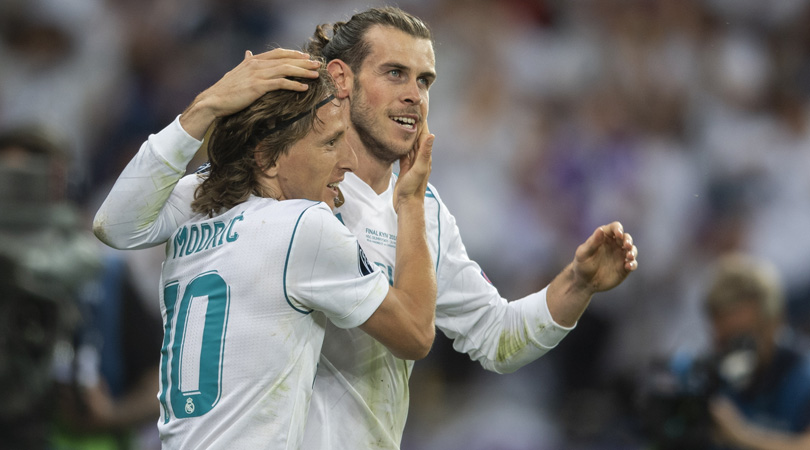
The free-scoring Welshman is hard to place in this list. He hasn't always been a guaranteed starter at Real Madrid, yet he has single-handedly won them two major finals – the 2014 Copa del Rey in his first season and the 2018 Champions League – by scoring two of the greatest goals ever seen in each competition. Even among the biggest difference-makers in world football, there are few who produce truly special and genuinely historic moments just when they’re needed most.
Bale even looked set to leave Madrid this summer, although Zinedine Zidane’s sudden departure changed that. Instead, he finds himself central to a Real side without Cristiano Ronaldo and with an opportunity to escape that overbearing shadow. Even before this season, he’s already won four Champions League medals (the joint-most of any British player), scored 70 goals in 126 La Liga games spent on the wing, and made the most appearances of any Brit in Spain.
2. Kevin Keegan
Hamburg 1977-80
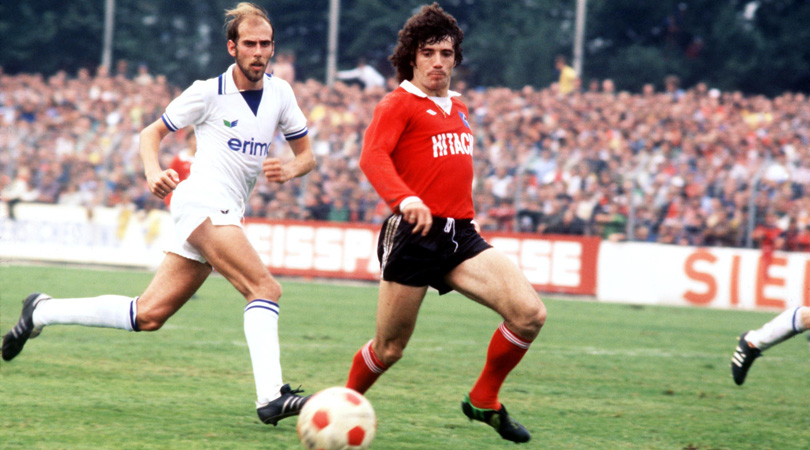
For the best-paid player in Germany, Keegan had something of an underdog story at Hamburg. Upon his arrival, team-mates refused to pass or even speak to the big-money signing, although that only inspired him to work harder and learn the language faster, and, returning to Anfield for the UEFA Super Cup, he was jeered by the Liverpool fans who’d once sung his name, while Hamburg lost 6-0. Then he was banned for punching someone in a friendly.
Before long, though, Keegan was so popular that he even made the name Kevin popular in Germany (albeit not Mighty Mouse, sadly). He led Hamburg to a league title 19 years in the waiting and helped them to overturn a 2-0 deficit in the European Cup semi-final by virtue of a 5-1 win over Real Madrid in the second leg, denying the Spaniards a final at the Bernabeu.
Everything built up to a fairytale ending in Madrid. Keegan was already due to depart for Southampton, of all places, and beating the European Cup holders, Nottingham Forest, in the final would be the perfect sending-off. Naturally, Hamburg lost 1-0.
Still, having been a close runner-up when he left Liverpool, Keegan did win consecutive Ballons d’Or during his time in Germany. The first was a little baffling, coming in his difficult first season, but it nonetheless makes him responsible for half of England’s Ballon d’Or wins.
1. John Charles
Juventus 1957-62, Roma 1962-63
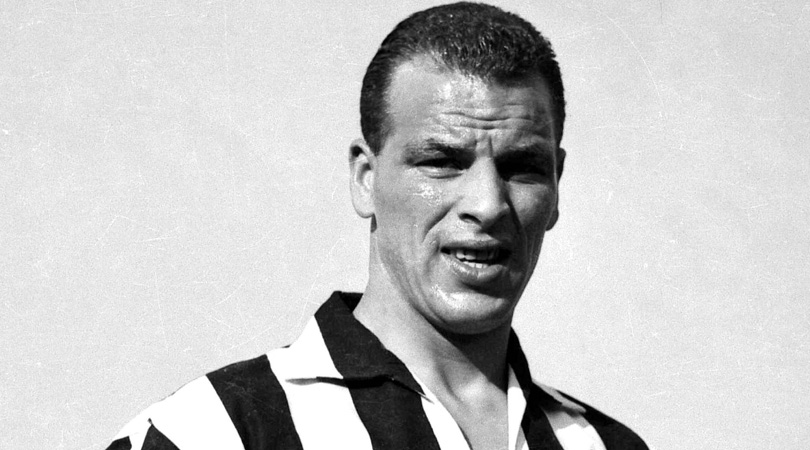
If you’d like an idea of how much respect the name John Charles commands in Italy – and, since you’ve read this far, you probably do – consider that in 2001, the Italian football hall of fame inducted its first foreigner, and ahead of Diego Maradona, Michel Platini, Marco van Basten, Gunnar Nordahl, Gabriel Batistuta and all of the rest, a Swansea boy was given the honour.
Charles’ impact at Juventus was as immediate as it was lasting. He scored the winning goal in each of his first three matches, and his debut season brought him the Golden Boot and Italian Footballer of the Year award. He wasn’t even Italian. A barrel-chested bull of a centre-forward, Charles was naturally good in the air but also adept with both feet, able to hammer home an Old Lady move even when tightly marked. He was an intelligent player, too, creating goals with passes almost as deadly as his shots.
Most of all, he was versatile. It was a common practice for Charles – also a genuinely world-class centre-back – to start in attack, score, then drop into defence later in the game to protect his team’s lead. No wonder Juventus spent two years trying to sign him from Leeds, then doubled the British transfer record to do so.
He never won the Ballon d’Or, instead having to settle for consecutive finishes of sixth, fourth, third (behind Alfredo Di Stefano and Raymond Kopa, who’d just helped Real Madrid to a fourth consecutive European Cup triumph), seventh, eighth and ninth, the last of those with Roma, despite playing fewer than a dozen games for them. And no, Wales didn’t get to vote.
That wouldn’t have bothered him, though. Il Gigante Buono – ‘the Gentle Giant’ – won five major trophies, the adoration of Bianconeri supporters and now, posthumously, our own little trinket. King John indeed.
New features you'd love on FourFourTwo.com
Huw was on the FourFourTwo staff from 2009 to 2015, ultimately as the magazine's Managing Editor, before becoming a freelancer and moving to Wales. As a writer, editor and tragic statto, he still contributes regularly to FFT in print and online, though as a match-going #WalesAway fan, he left a small chunk of his brain on one of many bus journeys across France in 2016.
